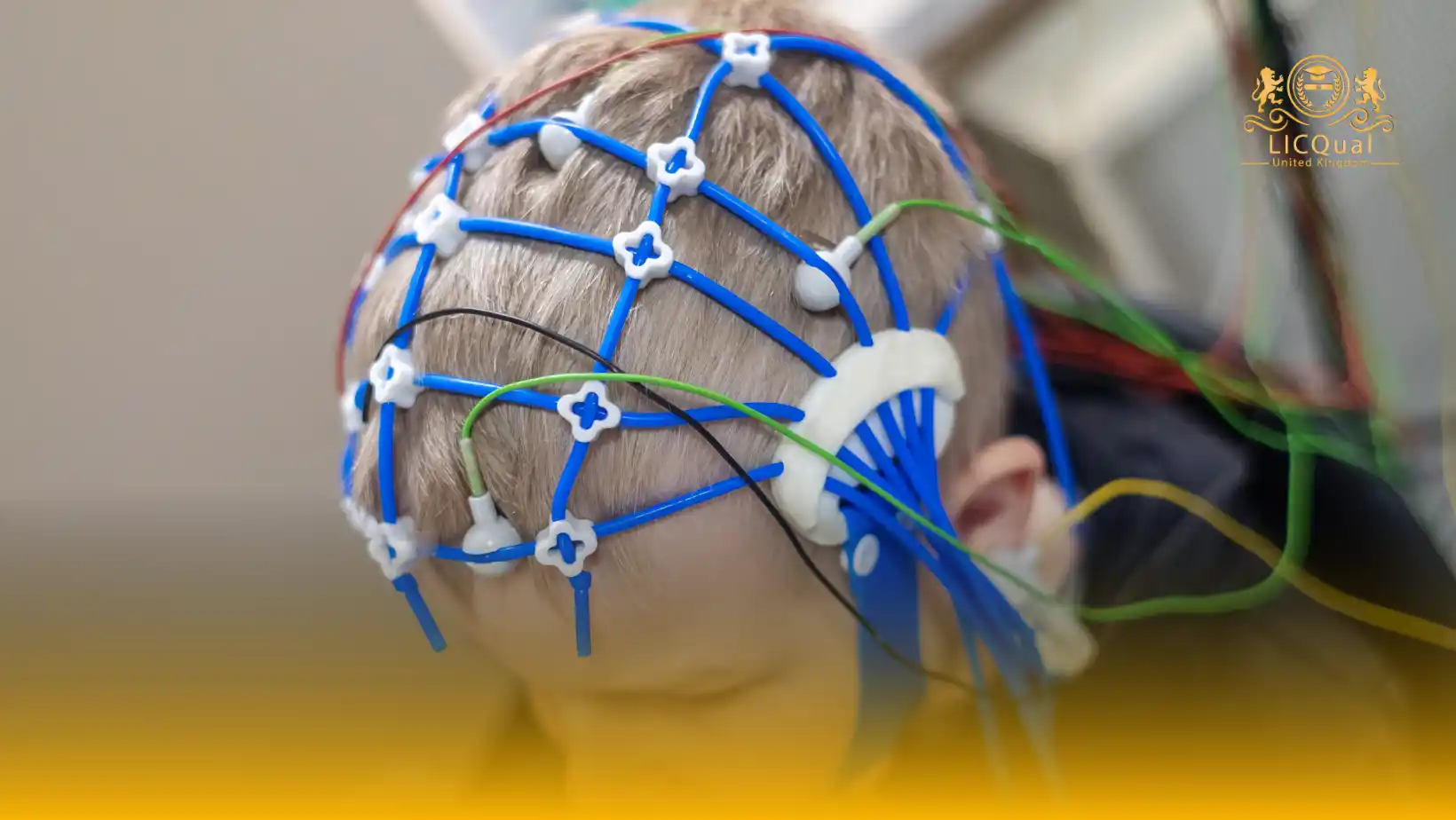The LICQual Level 7 Postgraduate Diploma in Nephrology (PgDN) is an advanced qualification designed for experienced healthcare professionals seeking to enhance their expertise in kidney diseases, renal care, and advanced clinical management. This course is not intended for fresh entrants but is ideal for nephrologists, physicians, nurses, and allied healthcare professionals who wish to expand their knowledge, improve patient outcomes, and strengthen their Continuing Professional Development (CPD).
Learners will gain comprehensive knowledge of renal physiology, pathophysiology of kidney disorders, advanced diagnostic techniques, renal replacement therapies, and evidence-based management of complex nephrological conditions. The curriculum emphasises the integration of theoretical knowledge with practical clinical experience, enabling learners to assess complex renal cases, implement effective treatment plans, and contribute effectively to multidisciplinary healthcare teams.
Centres delivering this qualification are required to employ competent and qualified staff, supported by modern clinical facilities, laboratories, and extensive learning resources. This ensures learners receive expert guidance, hands-on experience, and academic support necessary for successful completion of this advanced programme.
Upon completion, learners will be equipped to assume leadership roles in nephrology services, participate in clinical research, and implement best practices in patient care. This qualification represents a significant step for professionals committed to excellence, advanced clinical practice, and career progression in nephrology.
Course Overview
Qualification Title
LICQual Level 7 Postgraduate Diploma in Nephrology (PgDN)
Total Units
6
Total Credits
120
GLH
600
Qualification #
LICQ2200982
Qualification Specification
To enroll in the LICQual Level 7 Postgraduate Diploma in Nephrology (PgDN), applicants must meet the following criteria:
|
Qualification# |
Unit Title |
Credits |
GLH |
|---|---|---|---|
|
LICQ2200982-1 |
Advanced Renal Anatomy and Physiology |
20 |
100 |
|
LICQ2200982-2 |
Diagnostic Techniques in Nephrology |
20 |
100 |
|
LICQ2200982-3 |
Medical Management of Kidney Disorders |
20 |
100 |
|
LICQ2200982-4 |
Renal Replacement Therapy and Advanced Interventions |
20 |
100 |
|
LICQ2200982-5 |
Research Methods and Evidence-Based Nephrology |
20 |
100 |
|
LICQ2200982-6 |
Professional Practice, Ethics, and Continuing Development |
20 |
100 |
By the end of this course, learners will be able to:
Unit 1: Advanced Renal Anatomy and Physiology
By the end of this unit, learners will be able to:
- Analyse the structure and function of the kidneys, urinary tract, and associated systems.
- Evaluate renal physiology, including glomerular filtration, tubular function, and electrolyte balance.
- Assess the pathophysiology of acute and chronic kidney disease.
- Apply anatomical and physiological knowledge to clinical assessment and decision-making in nephrology.
Unit 2: Diagnostic Techniques in Nephrology
By the end of this unit, learners will be able to:
- Demonstrate expertise in laboratory investigations including renal function tests, urinalysis, and biomarkers.
- Interpret imaging modalities such as ultrasound, CT, MRI, and nuclear medicine in renal diagnostics.
- Conduct functional assessments and apply clinical scoring systems for renal disease.
- Integrate diagnostic findings into patient management and care planning.
Unit 3: Medical Management of Kidney Disorders
By the end of this unit, learners will be able to:
- Develop evidence-based treatment plans for acute and chronic kidney disease.
- Manage hypertension, electrolyte imbalances, and renal complications effectively.
- Apply systemic disease management in conjunction with nephrology care.
- Critically evaluate treatment outcomes and adjust management plans accordingly.
Unit 4: Renal Replacement Therapy and Advanced Interventions
By the end of this unit, learners will be able to:
- Demonstrate understanding of haemodialysis, peritoneal dialysis, and renal transplantation procedures.
- Plan, implement, and monitor renal replacement therapies safely and effectively.
- Apply minimally invasive procedures and advanced interventions in nephrology practice.
- Integrate safety protocols and multidisciplinary care in advanced renal therapies.
Unit 5: Research Methods and Evidence-Based Nephrology
By the end of this unit, learners will be able to:
- Design and conduct advanced research projects in nephrology.
- Critically appraise clinical literature and integrate evidence-based findings into patient care.
- Apply statistical tools and research methodology to interpret study outcomes.
- Demonstrate ethical and professional conduct in nephrology research.
Unit 6: Professional Practice, Ethics, and Continuing Development
By the end of this unit, learners will be able to:
- Demonstrate professional responsibilities and adherence to clinical governance standards.
- Apply ethical and legal frameworks in nephrology practice and research.
- Lead and collaborate effectively within multidisciplinary healthcare teams.
- Develop strategies for Continuing Professional Development (CPD) and reflective practice.
The LICQual Level 7 Postgraduate Diploma in Nephrology (PgDN) is ideal for healthcare professionals who want to enhance their expertise in kidney medicine and renal healthcare. This course is designed for doctors, nephrologists, and allied health professionals seeking advanced knowledge, practical skills, and international recognition. It provides a perfect blend of theoretical understanding, clinical application, and research-focused learning for career growth and leadership in nephrology.
Medical Doctors and Physicians
- Enhance diagnostic skills in kidney and urinary disorders
- Gain expertise in managing chronic kidney disease
- Master treatment strategies for renal failure and dialysis
- Strengthen clinical decision-making in nephrology
- Earn a UK-recognized Level 7 postgraduate diploma
- Prepare for leadership roles in hospital and private practice
Nephrologists and Specialist Physicians
- Deepen knowledge of renal pathophysiology and disease management
- Learn advanced therapeutic approaches for kidney disorders
- Gain practical skills in dialysis, transplantation, and imaging
- Access research-driven, evidence-based learning
- Improve patient outcomes through specialized care
- Enhance professional credibility in international healthcare
Allied Health Professionals and Clinicians
- Expand knowledge in nephrology and renal care practices
- Improve patient assessment and management skills
- Develop expertise in dialysis and kidney disease monitoring
- Learn to work effectively in multidisciplinary healthcare teams
- Strengthen evidence-based practice for clinical applications
- Prepare for advanced roles in nephrology departments
Biomedical Scientists and Researchers
- Explore kidney disease mechanisms and renal pathology
- Conduct applied research in nephrology and renal medicine
- Contribute to innovations in treatment and diagnostics
- Collaborate with clinicians on research projects
- Present findings in professional and academic forums
- Enhance career opportunities in academia and healthcare
Healthcare Administrators and Managers
- Understand operational management of nephrology services
- Develop policies for patient safety and quality care
- Learn resource planning and departmental leadership
- Support clinical governance and best practices
- Improve workflow efficiency in renal care facilities
- Build leadership and decision-making skills in healthcare
International Medical Graduates and Specialists
- Gain a UK-recognized diploma for global career mobility
- Adapt to international standards in nephrology and renal care
- Strengthen credentials for specialist licensure abroad
- Access flexible online and blended learning options
- Join a network of global nephrology professionals
- Expand opportunities in research, teaching, and clinical practice
Academic and Teaching Professionals
- Integrate advanced nephrology knowledge into curricula
- Mentor and train healthcare students and professionals
- Conduct academic research and publish findings
- Strengthen institutional reputation with an accredited diploma
- Develop workshops and specialized training programs
- Enhance career portfolio with a Level 7 qualification
Centres delivering the LICQual Level 7 Postgraduate Diploma in Nephrology must meet strict standards to ensure high-quality education and learner success. Key requirements include:
- Qualified and Experienced Staff: All teaching and assessment personnel must be highly qualified in nephrology, internal medicine, or related healthcare disciplines, with substantial clinical and academic experience.
- Modern Clinical Facilities: Centres must provide access to renal clinics, dialysis units, laboratories, and practical training environments essential for advanced study and hands-on learning.
- Comprehensive Learning Resources: Learners should have access to textbooks, academic journals, case studies, digital learning platforms, and other resources supporting in-depth study and research.
- Practical Training Opportunities: Centres must facilitate hands-on exercises, clinical simulations, renal replacement therapy procedures, and case-based learning relevant to nephrology practice.
- Rigorous Assessment and Evaluation: Centres must implement robust assessment strategies, including written assignments, research projects, and practical evaluations, to ensure learners achieve all learning outcomes.
- Ethical and Legal Compliance: Centres must adhere to professional, ethical, and legal standards in nephrology education and clinical practice.
- Support for Continuing Professional Development (CPD): Centres should provide guidance for ongoing CPD, reflective practice, and professional development, enabling learners to apply advanced knowledge in clinical settings.
Meeting these requirements ensures learners receive world-class instruction, practical experience, and academic support, preparing them for leadership and advanced practice in nephrology.
Assessment and Verification
All units within this qualification are subject to internal assessment by the approved centre and external verification by LICQual. The qualification follows a criterion-referenced assessment approach, ensuring that learners meet all specified learning outcomes.
To achieve a ‘Pass’ in any unit, learners must provide valid, sufficient, and authentic evidence demonstrating their attainment of all learning outcomes and compliance with the prescribed assessment criteria. The Assessor is responsible for evaluating the evidence and determining whether the learner has successfully met the required standards.
Assessors must maintain a clear and comprehensive audit trail, documenting the basis for their assessment decisions to ensure transparency, consistency, and compliance with quality assurance requirements.







